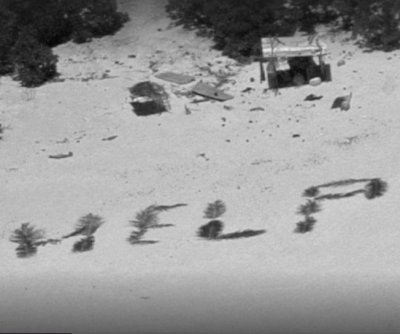The U.S. Coast Guard and Navy collaborated to successfully rescue three individuals who were stranded on Pikelot Atoll for over a week, as announced on Thursday. Lt. Chelsea Garcia highlighted the mariners’ ingenuity in spelling out “HELP” on the beach using palm leaves, which played a crucial role in their discovery. This act guided rescue efforts directly to their location, demonstrating the effectiveness of their strategy.
The three men, all in their 40s, departed from Polowat Atoll on Easter Sunday in a 20-foot open skiff equipped with an outboard motor. They were experienced in navigating the waters of the Atolls. The distress call from a relative of the men prompted the Guam-based Coast Guard to initiate a search and rescue mission.
Responders located the stranded men on Pikelot Atoll on Tuesday evening and safely returned them and their boat to Polowat Atoll, approximately 100 miles away. Captain Nicholas Simmons emphasized the unwavering dedication to the search and rescue mission, highlighting its importance in ensuring the safety of mariners and coastal communities while strengthening bonds of friendship and cooperation between the United States and the FSM, along with Department of Defense partners.
Men Trapped on Island Spell ‘HELP’ with Palm Fronds (Credits: Al Arabiya)
Initially, weather conditions and aircraft availability posed challenges to the rescue operation based in Guam. However, the U.S. Navy dispatched an aircraft crew from Kadena Air Force Base in Japan to aid in the search efforts. A U.S. Navy P-8 Poseidon aircraft located the stranded individuals on Pikelot Atoll, and contact was established via a U.S. Coast Guard Hercules aircraft based in Hawaii.
The individuals were confirmed to be in good health with access to food and water, although their skiff had sustained damage, rendering it non-functional. The Coast Guard emphasized the importance of equipping vessels with Emergency Position Indicating Radio Beacons (EPIRBs) to aid in emergencies like this. They noted the availability of loaner programs for these critical safety devices in growing maritime communities, making them more accessible to everyone.
